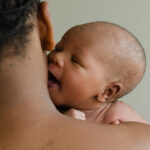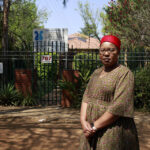The province is providing free sanitary pads to learners, so what’s stopping a national roll-out?
COMMENT
The KwaZulu-Natal education department this week announced that it will spend R50‑million to provide free sanitary pads to learners in about 2 000 poverty-stricken schools in the current financial year.
“We realised that girl learners were losing about three days of school per month as a result of not being able to afford pads when they have their periods,” says provincial education department spokesperson Muzi Mahlambi.
The average person who menstruates will use up to 17 000 sanitary pads or tampons in their lifetime, according to a 2014 study in the British Journal of Medicine and Medical Research. In South Africa, house-brand sanitary pads cost about R2.33 each, resulting in a lifetime cost of up to R40 000.
Most households in the country can’t afford this. According to South Africa’s 2011 census, a typical black household earns about R60 000 a year. Poorer people often end up using rags, leaves, toilet paper or newspapers instead of pads, to prevent embarrassing events such as bleeding through their clothes.
Numerous studies have shown that not using disposable pads can have health implications such as urinary tract infections. It also infringes on people’s dignity. The right to dignity is entrenched in our Constitution, yet many people are deprived of it because of something as natural and inevitable as monthly bleeding.
South Africa’s treasury doesn’t consider sanitary products to be “essential items”, which means they are not exempt from the country’s 14% value added tax. This makes pads and tampons even more unaffordable.
No other province has launched free pad projects on the same scale as KwaZulu-Natal and are unlikely to do so soon, as there is a lack of political will and co-ordination.
While I was an honours student at the University of the Witwatersrand, I put forward a policy proposal to Parliament to provide free sanitary pads to economically disadvantaged people.
Presenting the policy to Parliament made me realise how ill-equipped our national government is to provide free sanitary products so that female learners are able to menstruate in a healthy and dignified way. It is just not a priority for politicians and key decision-makers in government departments.
At my session in Parliament, the health department’s representative arrived unprepared for her presentation — even after the department had requested a week’s postponement.
It was unclear what the department of basic education was doing to help menstruating learners. The representative admitted to being aware of President Jacob Zuma’s 2011 promise to provide free sanitary pads, but said the department hadn’t yet drafted a policy to this effect. Instead, it has been left up to provincial departments to decide if (and how) they want to implement such programmes.
Some provinces, such as KwaZulu-Natal, Limpopo and Mpumalanga, took matters into their own hands and handed out pads in schools. But everything seems to be happening in a haphazard, unco-ordinated way, leaving room for funds and procurement processes to be mismanaged.
While politicians and government leaders drag their feet, learners are missing out on school and are being denied dignity simply because they menstruate and are poor.
What will it take for government to realise that they are denying such learners their basic human rights?
Health reporter Pontsho Pilane won the Livity Africa Parliament Challenge. She presented a proposal to Parliament to provide free sanitary pads to disadvantaged people.
Pontsho Pilane is the communications manager at Soul City Institute for Social Justice. Pilane was a health journalist at Bhekisisa from 2017 until 2019.





